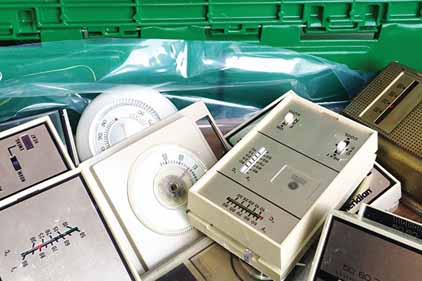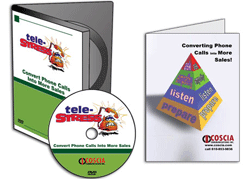Contractors Profit Motive
 What would you do with extra profit? Maybe take your spouse out to eat more, purchase those golf clubs you had been following on eBay, or save for your kid’s college expenses? This article explains how to upsell to homeowners the value that you provide as an expert in retrofitting homes that have products needing special disposal, such as refrigerant and mercury thermostats. Believe it or not, that “quick-silver” gooey stuff that you used to play with in grade school can actually make you money.
What would you do with extra profit? Maybe take your spouse out to eat more, purchase those golf clubs you had been following on eBay, or save for your kid’s college expenses? This article explains how to upsell to homeowners the value that you provide as an expert in retrofitting homes that have products needing special disposal, such as refrigerant and mercury thermostats. Believe it or not, that “quick-silver” gooey stuff that you used to play with in grade school can actually make you money.
As contractors you are responsible for charging a fair price for your services and, in the United States, profitability is the number one concern for small business owners such as contractors. How will these businesses outlast the economy? A simple solution is to look for innovative ways to do the same installation services but add on services to sell to the homeowner.
Blue Ocean Strategy
A Harvard Business Review article I recently read called, “Blue Ocean Strategy,” had this very premise in it. Businesses in all industries compete. Most use the “red ocean strategy” where they compete in existing “bloody” marketplaces and benchmark off of each other to the point where businesses are all the same. In contrast, blue ocean strategy states that “they make the competition irrelevant” by creating stronger differentiators.
State Law
As seasoned veterans of the HVACR industry know, much of the waste routinely generated requires special handling. We’re all familiar with state and federal requirements dealing with refrigerant. But did you know that all mercury thermostats removed from commercial structures need to be recycled, and that more than a dozen states now require all mercury thermostats to be recycled? Even where it’s not required, it’s common sense as mercury thermostats contain at least 1,000 times more mercury than a CFL bulb.
When you consider this, why not take a proactive approach and earn some money while doing it? You can distinguish your business from competitors through a new value-added service with minimal cost to implement. This will require the contracting business owner to train his/her staff on how to evaluate a job that generates waste needing special disposal, create a billable invoice line item, and be transparent to the homeowner on the charge. How would a contracting business do this?
Return on Investment Percentage Calculation
The first step is to determine what to charge for the service. Return on investment (ROI) is an important tool for making decisions regarding a job’s profitability. You want to invest in the resources that provide the greatest return. This is no different than selecting jobs you want to quote. The basic ROI percentage calculation is:
ROI percentage = Net Profit (before taxes) / Investment * 100
Let’s say the job you are quoting has a mercury thermostat and a condensing unit needing disposal and your net profit is $1,000, whereas the total investment cost1 to do the job equaled $10,000. Your ROI percentage on this particular job would be 10 percent or (($1,000/$10,000)*100).
But let’s say you were to charge $100 extra on the job as an add-on to your quote because they had materials which required your disposal expertise such as refrigerant, scrap materials from the condensing unit, or a mercury thermostat. Your ROI percentage on this particular job would be 11 percent or (($1100/$10,000)*100) with the extra $100 contributing directly to your investment costs to perform the job. Seems rational to me to ask for a little more to provide a value to the customer.
Contractors charge add-ons for financing, extended labor coverage, maintenance agreements, and current promotions from the equipment provider. Here is your chance to build in the opportunity for more profit.
Why Train Selling Recycling?
Training your sales staff can provide an easy differentiator, especially when you are competing against a low-cost competitor. If the homeowner doesn’t want to pay the fee then you have the choice to waive it. The fact that you sell this service demonstrates your commitment to your local community to do the right thing and you ease the homeowner’s fear by proving your expertise in HVAC systems and protecting the environment.
Recycling Is Profitable
Explicitly dealing with the disposal of special waste can benefit your business’s reputation, credibility, and most importantly profit. Recycling helps protect the environment and business which means you have a positive public reputation in the communities in which you serve. Wouldn’t the contracting community all benefit if we can add another reason for the consumer to choose you instead of the low-cost alternative?
Mercury thermostats and R-22 will eventually be a thing of the past. But until they are all gone, make sure to help your business earn more profit by charging for your service. Next time you see a product on your job that requires special disposal, don’t think how much this might be a waste of your time, but think how much extra profit you will earn on the job. What would you do if you could make $150 more on every job that includes replacing a mercury thermostat? Your golf bag will be grateful.
1 Investment costs in a HVACR contracting business can be defined as materials, labor, and direct costs. Some may define this as cost of sales.
Publication date: 7/7/2014
Want more HVAC industry news and information? Join The NEWS on Facebook, Twitter, and LinkedIn today!











